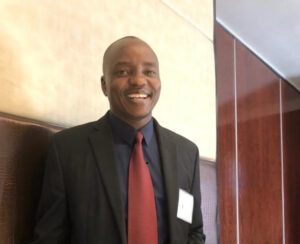Following increased reports of sexual harassment in Nigerian tertiary institutions, Nigerian lawmakers proposed a Bill to prevent, prohibit and redress sexual harassment of students in tertiary educational institutions (2020). In light of this anti-sexual harassment Bill, the Gender Mobile Initiative on April 28, 2022, organized a Twitter space conversation titled ‘Power Dynamics in Social Relations between Educators and Learners in Tertiary Educational Institutions.’
The online dialogue sought to raise awareness and encourage the public to speak up in support of the Bill. The conversation was moderated by Wumi Ogunrotimi, Founder and Executive Director of Gender Mobile, and had a wide array of speakers.
As one of the invited speakers, I discussed the need to have laws that govern relationships between educators and learners. With the availability of data, more institutions are moving away from saying that consent is enough to saying that when there is a power difference, which is definite in a learner/educator relationship, then consent is not enough. This is because there exists a potential element of coercion and intimidation and may be difficult to tease apart.
Other speakers talked about the Bill addressing the power imbalance by creating a fiduciary duty of care on the side of the educator that prohibits them from relating for personal gain, sexual pleasure or immoral satisfaction with any learner.
The conversation had over 12 facilitators and 500 participants including students that had experienced sexual harassment and shared their encounters. Highlighted was the need to improve awareness around the huge burden of sexual harassment in Nigerian institutions and the importance of the proposed Bill. The discussion indicated that people are still unaware and might not support the Bill when it comes to a public hearing. Thus, Gender Mobile is poised to continue the conversation in tertiary institutions around the country with training and workshops to enlighten university communities on the need for an anti-sexual harassment policy that will be fully implemented.
In line with improving the understanding of the perceptions around sexual harassment on Nigerian campuses, I am currently exploring the factors that drive heterosexual and same-sex harassment in Nigerian tertiary institutions and the lived experiences of individuals who have experienced sexual harassment. This is with funding from a CARTA re-entry grant. Data from this project will help institutions to design and implement policies that can improve their response to sexual harassment.
About the Author
Boladale Mapayi, Cohort Four Graduate is based at Obafemi Awolowo University, Nigeria. More on her CARTA Profile





No Comments